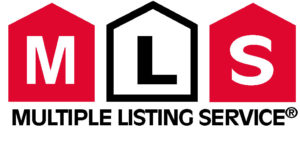No doubt you’ve heard the buzz before about the “Spring Market,” which historically has been the most active trading season for real estate.
But how much do you know about securing a mortgage on your dream home? If you are thinking of jumping into the wonderful world of home ownership this spring, before starting your search is the best time to get qualified for the mortgage you will need.
So, just exactly what does that look like?
First, pick a lender to work with. Typically, pre-qualifying through your primary credit union or bank is expedient because you already have a relationship with them. However, there are other avenues, such as mortgage brokers, who work with many lenders to find you a custom fit. No matter which way you go, you’ll need a few basic items…such as:
1) Your most recent pay stubs (at least two) from your employer. If you are a new hire, or have recently switched fields of employment, you may also need a letter confirming your status (full- or part-time), salary or hourly wage (along with guaranteed number of hours per week).
2) Your current, or possibly the last two years’ worth, of assessed tax returns.
3) A list of your assets, RRSP’s (or other registered savings account details), personal property, vehicles, etc.
4) A list of your debts (credit cards, personal loans, etc).
5) Identification.
6) Proof of down payment funds, which have been in your account between 30-90 days, or a gift letter from a generous family member or friend.
Depending on your situation (i.e. if you are divorced), there may be other information that the lender will need.
You’ll also be asked for consent to check your credit report (lending and payback history). Most banks expect a credit score of 600 or higher. Keep in mind that your credit score is derived by assessing variables such as how much access you have to credit and whether or not you pay on time. Simply carrying a balance on your credit card isn’t enough to sink your score, but always paying late is. So, make those payments on time, or early!
Now your lender will either say yes, you’re ready, or no, you should take steps to get in a better position.
If all’s good, you’ll be given a budget to work within based on something called your debt-to-income ratio (how much you earn vs how much your payments are). Keep in mind, at this point, you are only PRE-qualified based on your current situation. If anything changes, your approval may also change. That’s why this next part is of utter importance…
Once you find the property you love, it’s time to go back to the bank with your accepted offer for the final approval. It’s at this point that the lender will fully qualify not only you, but the property you have made the offer to purchase on. Sometimes an appraisal will be necessary to ensure that what you’re willing to pay is in line with what the home is worth.
Once you get the “OK” from the bank, it’s wise not to make any other big purchases (furniture, a car, or otherwise) on credit until after the closing date. Some lenders will pull a last-minute credit report just before closing to ensure that the numbers still work.
A little knowledge helps a lot when it’s time to start your home buying journey!



